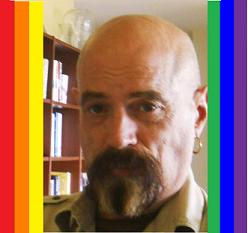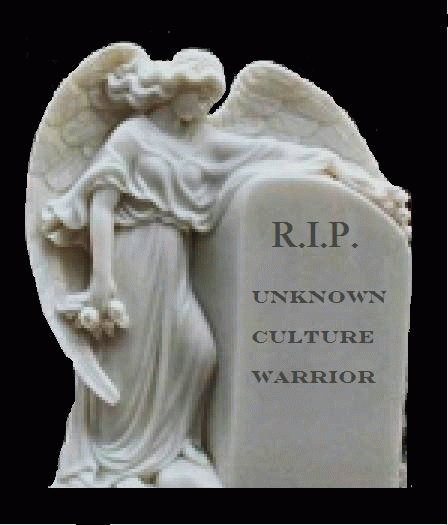" ...the culture wars are still inevitably significant, for the very simple reason that there's no common ground on which to call a truce."
- Ross
Douthat, New York Times, The Persistence Of The Culture War, Feb. 7, 2012
The scene is iconic and always unforgettable: the President laying
the wreath at the Tomb of the Unknown Soldier. It is a symbolic gesture filled
with dignity, solemnity and, yes... hope: hope that our casualties of war will
someday dwindle to nothing. It also brings to mind horrendous battle scenes,
matchless courage... and bloodied bodies strewn across vast
landscapes: the detritus of war.
And while it is a time of remembrance, it is a time when we forget
that we are engaged in wars of another sort, wars that have had just as many
casualties, wars that have changed the lives of past generations and
generations to come. They are wars in which we have been engaged in for many
years, wars which seem to have no end. And they are civil wars because they are
fought with our own citizenry.
The culture wars are spoken of so casually that people forget that
they are just as deadly and fought on a landscape just as perilous as any
mine-laden field. Yet we have no tomb upon which to lay a wreath nor do we have
a day to commemorate the casualties - to stop and think about the culture
warriors and about those conflicts effecting our world.
As with all wars, the culture wars of America have had two sides -
two sides which mourn their dead, be they people or ideologies. The ferocity of
the battles are equal to the battlegrounds: abortion, women's rights,
homosexuality/gay rights, racism, multiculturalism, gun politics,
environmentalism, capitalism, socialism, religious intolerance, global warming,
birth control, energy, evolution are some which have had more prominent scenes
of battle.
Perhaps the most telling difference between the sides is that one
side deals in huge numbers, broad terms and generalities - 40 million aborted
babies, the "death" of civilization," the scourge of
"socialism", while the other side focuses more on specifics,
personalities and issues: Matthew Shepard, Dr. Martin Luther King, the specific
rate of unemployment, the 99%, gun control. One warrior has been trained to
fight virtually everything of the opposing view, while the other warrior is
slightly more focused.
Both warriors are courageous and fierce when engaged in mortal
combat.
No one can doubt that the Tomb of the Unknown Soldier is a
monument to a stereotypical U.S. soldier, a kind of military
Everyman, so the concept of a memorial for a universal culture warrior seems
nearly impossible. But it is not ridiculous: all of us on both sides, need a
focal point for reflection, a reminder that people have fought for something
they believe in, will continue to fight, and that the outcome of the battles
will determine the fate of mankind more than any number of bullets and bombs.
The Tomb of the Unknown Culture Warrior would not be a monument to Good vs Evil
or Right vs. Wrong, but to the one thing that glorifies humanity more than
anything else: passion for a cause.
Paying tribute at the Tomb Of The Unknown Culture Warrior might
actually provide that which Ross Douthat doubts could ever happen: a ceasefire.
Yes, a tiny, but much needed truce for our culture-war weary world.






